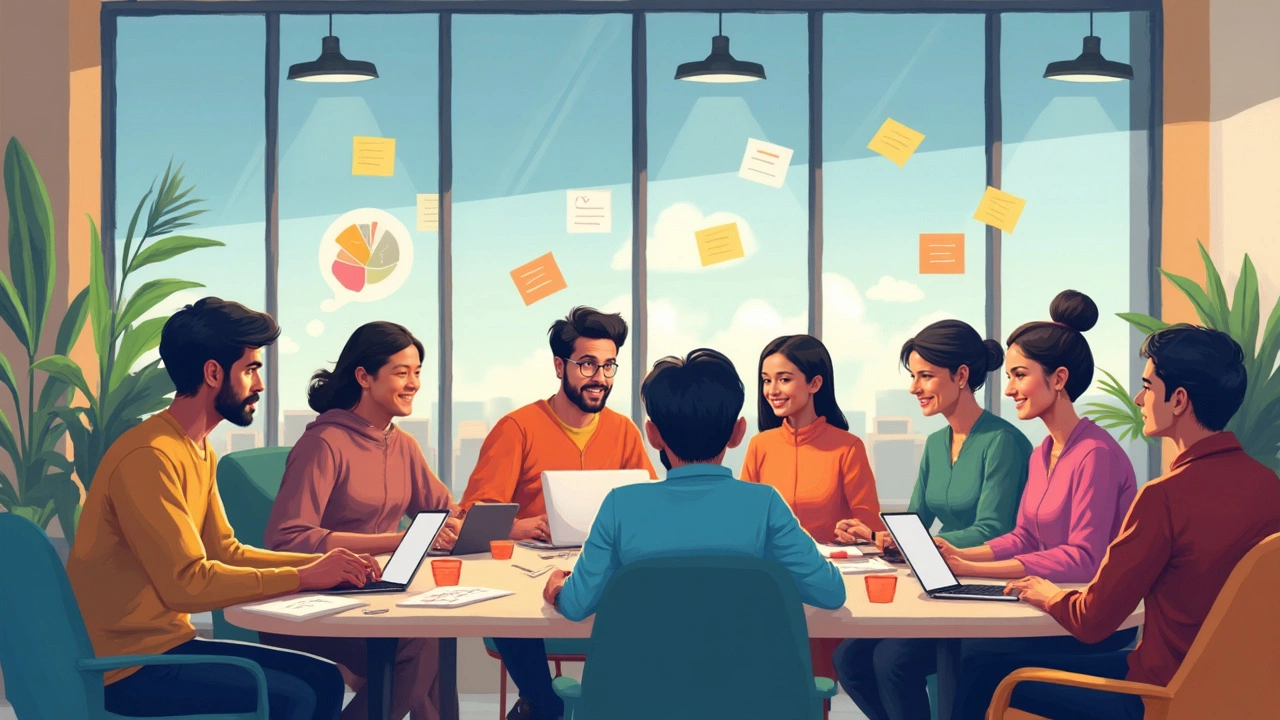Ever thought you’re too old to start coding at 35? Let’s put that myth to rest right now. Coding is not just for 20-something tech prodigies, and it certainly doesn’t have an expiration date. In fact, diving into coding in your mid-thirties can actually be a more strategic move than you think.
A lot of folks over 30 are successfully making the switch to tech, bringing with them years of industry experience that can be surprisingly handy. Why? Well, at 35, you probably have work experience, patience, and problem-solving flair that younger folks might still be honing. Plus, coding is more than just writing lines of code. It's about solving problems and communicating solutions efficiently, which are skills you’ve likely been fine-tuning through your career and life experiences.
Intrigued by the idea but not sure how to start? You don't need a computer science degree to get into it. The web is full of beginner-friendly online courses and resources designed for adult learners. Platforms like Codecademy, Coursera, or freeCODEcamp, make it a breeze to learn at your pace and schedule. So, grab your laptop, and start typing your way into a new adventure!
- Debunking Age Myths
- Benefits of Late Coding Adventures
- Real Life Success Stories
- How to Start Your Coding Journey
Debunking Age Myths
Feeling like 35 is too late to jump into the coding world? Let’s tackle some of those nagging age-related doubts. First off, the tech industry needs diversity. It’s hungry for folks from different backgrounds and age groups. Your life experience can be a huge asset. It can help you approach problems from different angles compared to younger coders.
One common fear is that older brains just can't keep up with learning new stuff. Surprise—studies show that adult brains are pretty darn adaptable. You can still pick up new skills and even outpace younger learners when you bring your wisdom into the mix. Think of all those work challenges you've successfully navigated. You’ve been learning all along!
Hear about those famous tech billionaires who started young and think that ship has sailed? Forget it. There’s a bunch of coding success stories starting later in life. Consider Larry Wall, who created the programming language Perl in his mid-30s. Or, if you’re into data, Kirk Borne swapped from being an astrophysicist to a data science guru in his 40s. Talk about late-blooming stars!
Jumping into coding at 35 isn't just an option; it can be a brilliant career move. With the right motivation and resources, there's no reason you can’t excel. And hey, the tech community online is super vibrant! It’s like an endless support network, ready to help you on your journey.
Stats also show a steady demand for tech jobs, making it a field worth entering no matter your age. Here's a quick look at job growth:
| Job Role | Expected Growth by 2030 |
|---|---|
| Software Developer | 22% |
| Data Analyst | 25% |
| Web Developer | 13% |
These numbers reflect more than just opportunities—they highlight how critical tech skills are today. So, if you’re wondering if you’re too old, know that this industry awaits experienced heads like yours. Let’s break those age myths and start writing a new chapter!
Benefits of Late Coding Adventures
So, you're thinking about diving into coding classes at 35. You might be surprised to discover that starting later can actually be an advantage. Why? Because, with experience, comes perspective. You probably have a better understanding of industry needs or project management, which can make your coding solutions more practical and impactful.
One big perk is career upgrade potential. Many industries are now tech-centric, so being able to program can open doors to new roles or promotions. Think of sales roles evolving into tech sales, or moving from marketing to digital marketing. Plus, this isn't just true for tech companies. Retail, finance, healthcare—all kinds have growing tech needs.
Aside from career boosts, there’s personal growth. Coding can be creatively satisfying and may even offer some stress relief. Seriously, solving a tricky problem or building something from scratch is kind of like finishing a puzzle. It feels pretty amazing!
It can also mean more flexibility. Learning how to code might let you work remotely or freelance, which can be a blessing if you’re looking for a better work-life balance or if you just want to skip the daily commute.
Adults learning to code often report a sense of achievement and confidence from mastering a new skill. If data’s your thing, check out this findings: a survey from the tech skills platform, Pluralsight, showed that 74% of adults learning coding say it made them feel more capable and job-ready.
Bottom line, your late start isn't a drawback—it's your secret sauce. You're not just learning, you're reshaping how you approach your career and personal challenges. It's about blending what you already know with what you're learning to create something pretty fantastic. Doesn’t sound like a bad deal, right?

Real Life Success Stories
You might think you're paddling upstream when starting coding at 35, but plenty of folks have made waves doing just that. Take Tim Chase, for example. He was once knee-deep in marketing spreadsheets but took a leap of faith into coding. Tim didn’t just dabble—he enrolled in a coding bootcamp and now works as a full-stack developer, loving every bit of his new career.
Then there's Sarah Howe. Sarah found herself in a teaching role that no longer excited her. She decided to shake things up by learning Python and ended up landing a gig as a data analyst. Turns out the analytical skills she picked up in the classroom helped her excel in tech roles.
Ever heard of Jack Shuster? He spent over a decade working in car sales but felt stuck. After teaching himself JavaScript from free online resources, Jack is now a front-end developer. He even says his experience with customers gives him a unique edge when creating user-friendly web interfaces. Pretty cool, right?
If stats keep you motivated, consider this: a survey from a well-known online education platform showed that about 25% of their learners are over 30. In fact, many of those learners went on to start new tech careers within just a year.
These are just a few success stories that prove age is just a number, especially in the world of coding. So, gather your resources and confidence, because coding at 35 isn’t just possible—it can totally transform your career path.
How to Start Your Coding Journey
So you’re ready to jump into coding? Awesome! First things first—don’t get overwhelmed by all the options. Let’s break it down step by step.
Step 1: Choose a Language. Picking a programming language to start with can feel like picking a new Netflix show. Popular beginner-friendly languages include Python and JavaScript. Python is known for its simplicity and is great for web development, data analysis, and more. JavaScript is essential if you’re into web development. Choose based on your interests.
Step 2: Get the Right Resources. The internet is your oyster. Websites like Codecademy, Coursera, and freeCodeCamp provide courses designed specifically with beginners in mind. They lay down the basics and build up your skills with interactive lessons and projects.
Step 3: Consistent Practice is Key. Learning to code is like learning a new language; practice makes perfect. Set aside dedicated time each day to go through lessons and work on small coding projects. This will help you retain what you learn and apply it more effectively.
Step 4: Join a Community. Hooking up with a community can make a big difference. Platforms like Stack Overflow or Reddit’s coding forums are full of folks sharing tips, solving problems, and offering support. Connecting with others can keep you motivated and help you tackle tricky coding challenges.
Step 5: Build, Build, Build. Once comfortable with the basics, start building your own projects, no matter how small they seem. Whether it’s a simple to-do list app or a personal website, building real-world projects boosts confidence and lets you apply what you’ve learned in a tangible way.
Starting this journey isn’t rocket science. With the right mindset and a little bit of determination, you’ll find yourself not just learning a new skill but also opening up new career paths. Remember, coding for adults is not just possible; it can be incredibly rewarding. Happy coding!

